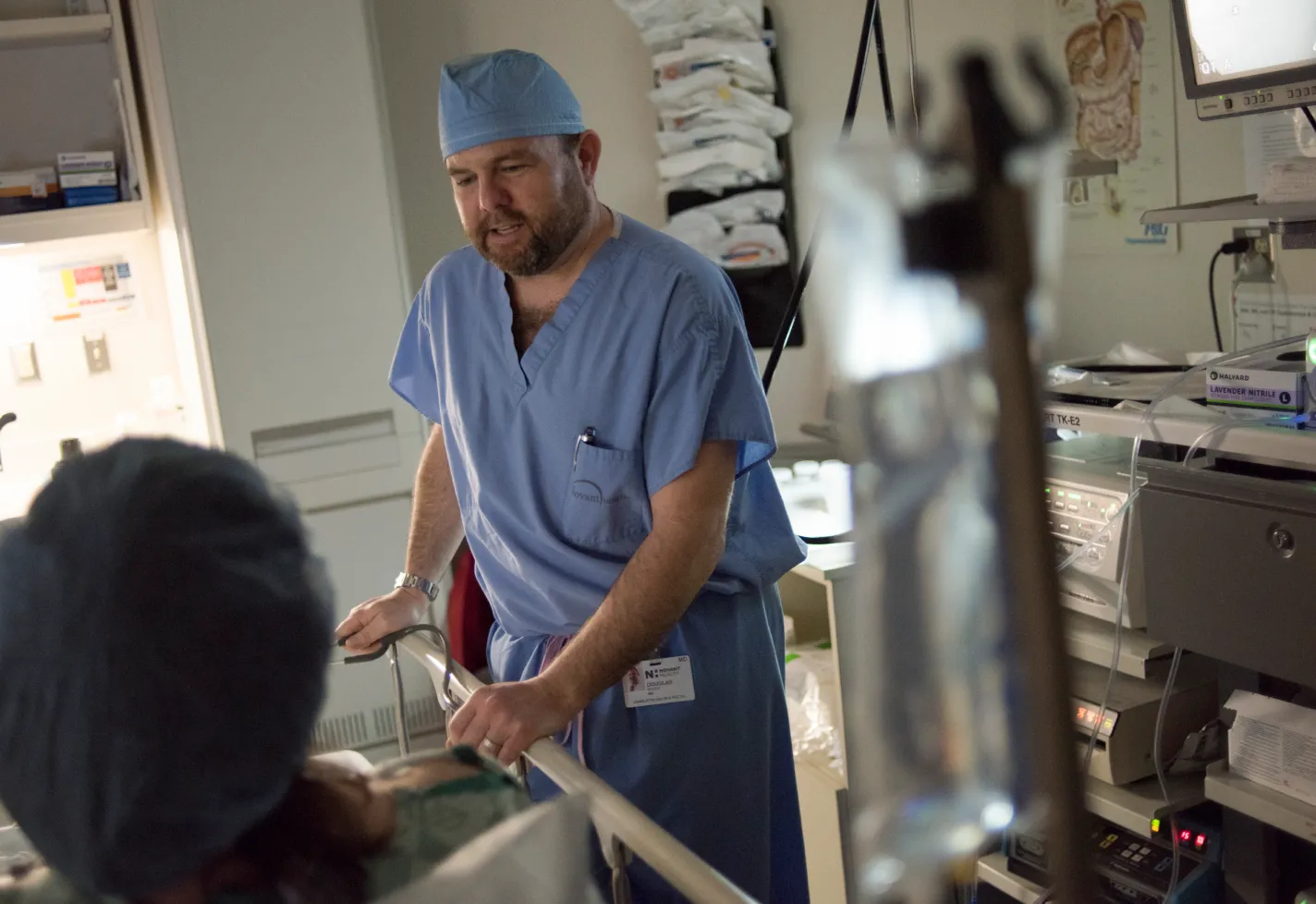Advanced Urologic Surgery
Empathetic care for kidney, bladder and prostate conditions.
If you're uncomfortable talking about a prostate issue or urinary incontinence, rest assured that our surgical team combines compassionate care with the latest surgical procedures to put you at ease.

What is urologic surgery?
Urologic surgery focuses on operations of the urinary tract and the reproductive system. Our surgeons treat various bladder, kidney and prostate conditions. These multidisciplinary specialists cover a range of issues, from urinary incontinence to urologic cancers.
Who treats urologic conditions?
A urologic surgeon, also called a urologist, is specially trained in all areas of urologic conditions and treatment. Urologists must complete medical school followed by a specialized residency that includes medical and surgical training. Many urologic surgeons pursue even more specialized areas.
All the urologists at Novant Health are board certified. This extra credential requires additional training, testing and a history of successful patient outcomes through documented patient surgeries.
Dedicated to early recovery
At Novant Health, you'll be treated by trained experts who work as a collaborative team. Our urologic surgeons use the latest advanced technology for quicker recovery, less pain and minimal scarring. We recommend organ-sparing surgeries, whenever possible.
Minimally invasive techniques include laparoscopy, where small incisions are made to insert a miniature camera. This results in less damage to the tissues surrounding the surgical site. You may also be a candidate for robotically assisted surgery. In this procedure, your surgeon uses a computerized system for higher precision. This technique reduces blood loss and the risk of infection and speeds up recovery.
Urologic Procedures We Perform

Have Pre-Surgery Questions?
It's natural to want to learn more about your surgical procedure before you arrive. Your care team will explain what you need to know in the days leading up to surgery. You’ll find answers to some of your questions on our Preparing for Surgery page.

Safer, Faster Recovery With ERAS
Our surgeons adhere to the Enhanced Recovery After Surgery (ERAS) care pathway.
This means your entire care team follows scientific-based methods before, during and after surgery designed to reduce your pain, reduce your recovery time and enable you to go home faster.
